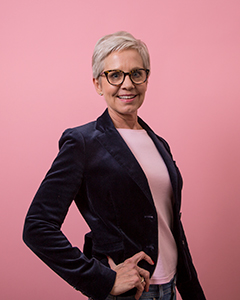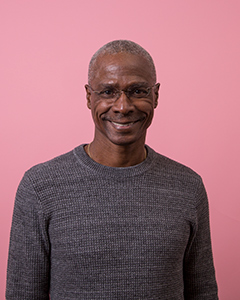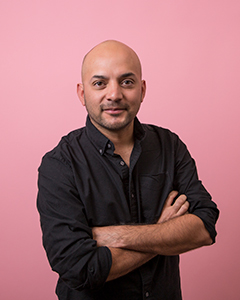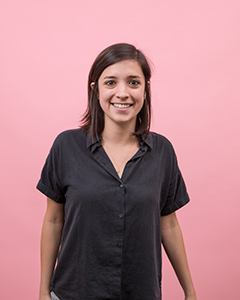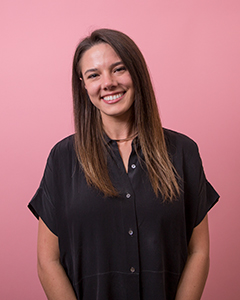What’s your title or role at GSD&M?
I’m an Executive Producer. But in the contemporary sense of a job “role,” I’m also able to play across disciplines in strategy and creative and technology and content. I like to see the connections between things and the interplay of systems, so I like to get involved in all things digital. I love information and narrative.
What’s your association with interactive and new technologies being developed for GSD&M’s client roster?
The same as it always has been, really. What makes people tick, and what about what makes them tick makes them, or aids them, or prevents them, in making the choices they do. Or the choices that we want to influence them to make. More often that not, now, I believe those choices are made in conjunction with technological experience. Google is an extension of our brains, as multiple smart people at SXSW have pointed out.
How big do you think social media can get without being invasive? Or are we already living in a modern day version of ‘Minority Report’?
Social media will get as big as it needs to get – I think people are really good at exploiting the advantages of it, as well as generally mitigating risks of using it – but we definitely need to have important continuous conversations about privacy and responsibility, whether personal or corporate or political. In the predictive sense of Minority Report, in some sense I’d say yes we are there to a degree, but generally in positive ways. Researchers, for example, can use social media to uncover previously unknown and unstudied prescription drug side effects by studying query content posted across social networks. People are creating collective change that benefits all of us, without actively knowing it. This fueling of discovery is really interesting. Social media fuels political revolutions on a scale and speed that is amazing to witness. That’s extraordinary in the sense of “big.” I hope people keep looking for ways to make good out of it while preventing its misuse or abuse. It’s totally redefining our sense of Democracy.
How challenging can it be to have a brand transition over to a new technology or platform?
Transitioning to a new technology or platform is only really challenging in the sense that organizations move at different speeds, sometimes have misplaced priorities when it comes to addressing consumers and their use of tech and their digital behaviors, or are trying to cope with capital investment and legacy infrastructure. Ultimately the challenges boil down to the same as they’ve always been though: getting and keeping customers, and institutional resistance to change. Those customers have to be earned and the relationships with them managed in new and different ways – you can’t just tell them what to do and buy. This is where transparency comes into play. You have to have a relationship, and good relationships are built on trust and openness.
Most technology or social media platforms are just ways to participate in new forms of word-of-mouth. If we can simplify those kinds of insights for clients and customers, then the transitioning – which is another way of saying “being able to adapt to a rapidly changing marketplace” – shouldn’t be a challenge. Most of the digital spaces that people inhabit are mature mass media now – in that sense all brands are digital brands. So you have to get with the program, and fast.
What’s the next big push in social media, user engagement and brand integration?
I think sustainability. Not in the environment-only sense that I think green brands have created popular associations with, but in a macro sense of the environment as well as economic and social sustainability. I think the peer-to-peer model is fascinating in that regard. There are so many great examples, like Airbnb. Businesses can now reach or connect customers directly with each other in ways they never could before, without having to go through an inefficient system of middlemen. Those transactions benefit people and communities in direct ways and create sustainable opportunities with surprisingly broad reach and real value. That is true for consumers seeking services and goods from other consumers, too. eBay will go down as one of the great innovators of our age, along with the usual suspects.
I think it’s cool how there seem to be more and more fluidity in forming, disbanding and reforming collective talent to serve business and market needs and to solve problems efficiently. This is why SXSW is such a great event. It shines a light on what is really innovative about people’s concept of work and productivity and sustainability. Maybe the next thing is this sort of Frictionless Freelance Revolution.
Who the hell knows – it’s the guessing that keeps it interesting every day, though.
How are new technologies bleeding over into music culture, food culture and the arts?
That would take a doctoral dissertation to explain. We don’t own things the way we used to, and we’ve made intangible things, like MP3s, out of wonderful tangible things, like record albums. Not to be nostalgic, but I do think when we lock things up digitally, we then lose a deeply human ability to share these tangible artifacts that define and represent our achievements and interests. That’s why I don’t think records will ever go away. We need to hold on to things! I think photography arts will go through a revolution when people realize all this imagery is just locked away in devices. Free the images! Free the music!
If you went back in time by 20-30 years, knowing everything you know today, what would you create or develop?
If it could be anything, I would invest in finding treatments for HIV/AIDS and would have skipped all those lost decades where we as a nation didn’t act as fast as we could have or invest where we needed to. When I stop and think about all those people we lost, I think about all the beautiful ideas and art and vision that was lost to the world. We’ll never really know. Maybe a cure for cancer or a trip to Mars or something else extraordinary was delayed by a century because we as a society were so short sighted, judgmental, afraid, or just plain hateful.
Tell us something:
I think everyone deserves an opportunity, in this business, to work on a brand or business project that makes a real, tangible difference in improving people’s lives. If you don’t feel you have this opportunity, then you need to create it.
